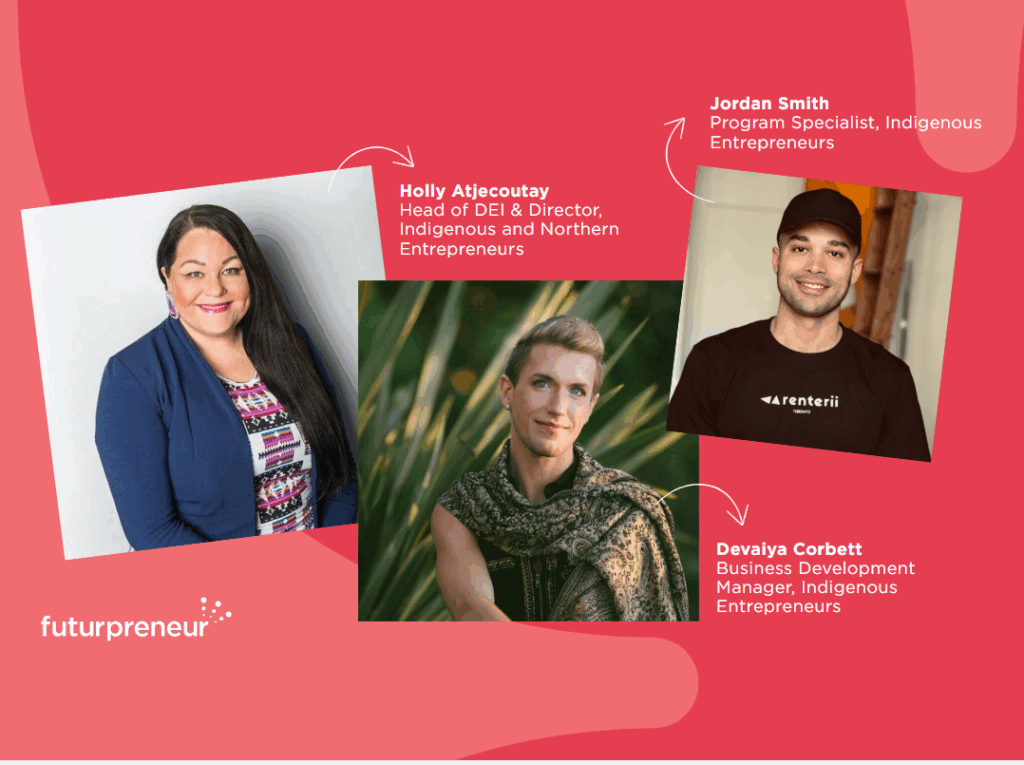
- Futurpreneur(s) and partners
- Social impact and sustainability
Small Businesses Can Do Well by Doing Good
INTERVIEW WITH DEBORAH SWARTZ, ACCENTURE
Written By: Kristin Knapp, Content Copywriter, Futurpreneur Canada
Corporate social responsibility (CSR) is a big topic in business today. The Harvard Business Review took a hard look at CSR in its January 2015 issue, saying that a business’s main goal should be aligning its social and environmental activities with its core business purpose and values. Businesses of all sizes can enjoy the benefits of CSR, from building relationships with customers to keeping employees engaged.
Many young entrepreneurs want to understand how they can build ethical, community-minded businesses while remaining competitive in the marketplace. We sat down with Deborah Swartz, Corporate Citizenship Lead for Accenture in Canada to talk about some key ways that entrepreneurs can integrate CSR into their business models.
Many people probably don’t know what a “CSR Lead” does. Can you describe the work you do and your role in the organization?
As the Corporate Citizenship Lead for Accenture in Canada, I manage the entire corporate social responsibility program for the Canadian practice. That means overseeing all of the volunteer work and cash grants that we do to support causes and charitable organizations across the country. Under the program I also manage our pro-bono consulting projects – that’s when we offer our core consulting work to a charity for free to help it run more efficiently and sustainably. I also work closely with the team responsible for our global environmental sustainability strategy to ensure we’re implementing all of those programs and standards across our practice here in Canada.
What kind of corporate social responsibility does Accenture do? Is it primarily about supporting causes through donations?
Accenture has a global initiative called Skills to Succeed that’s focused on helping people around the world get the skills they need to be employable and contribute to their local economy. As a consulting firm, Accenture’s core business is built on human capital – people with business and technology skills sharing that knowledge to help our clients grow. So it’s a natural fit for us to harness the skills of our people and give back to the community in that way.
When we first launched Skills to Succeed, we knew that employability and entrepreneurship were pressing issues both in Canada and abroad. We’ve been struck by how relevant and urgent these issues have become in nearly every country around the world. We recently announced our latest goal for the Skills to Succeed program – to equip three million people globally with the skills to get a job or build a business by 2020. Since 2011 we have already equipped more than 800,000 people with workplace and entrepreneurial skills.
A lot of businesses are developing corporate social responsibility platforms and programs these days. Why do you think this has become such an important part of companies’ strategies?
I think businesses are realizing that you really can do well by doing good. Nowadays, your customers and clients are not just judging you by the quality of your product; they care about the character of your brand. They want to buy from brands that understand why giving back to the community is an important part of being a profitable business. And they want to feel good about the brands they support.
Socially responsible businesses are likely to be more attractive to investors, employees, customers, suppliers and governments. Everyone wants to work with and for organizations that are doing good in the community. And it helps to build deep relationships with customers and stakeholders by exposing the heart and soul of your organization. We’ve moved beyond the basic transactional customer/supplier relationships of the past, and corporate social responsibility is a big part of that.
Large companies have a lot of money to put behind CSR programs. What are some of the different ways that small start-ups and young businesses can incorporate CSR into their business models without large budgets?
Philanthropy starts not with cash, but with ideas. Businesses that are true corporate citizens are the ones that have figured out what specific value they have to bring to their communities and are doing it. If you can’t support your chosen cause with dollars, it can mean rallying your employees around that cause and inviting them to volunteer and share their skills with the community in a meaningful way. The first step is developing a strategy around giving. What issue will the company address and in what form? How long will it realistically take to get accomplished? How does the goal fit with the company’s core values? Start with a strategy, figure out what’s realistic and build something from there. No action is too small.
What tips would you give to a young entrepreneur who wants to develop a CSR program on a shoestring budget?
First, tap into social responsibility networks to get guidance and support. Some prominent networks in Canada include Volunteer Canada, the Social Venture Network.
Second, be sure to leverage informal networks. Learn what your options are based on others’ experiences and start to gather insights into what is realistic and possible for your business.
Third, set out to create a plan for your CSR program with a roadmap to develop it over the next three or four years. Determine what percentage of your profits you will dedicate to CSR, or how employee volunteering and in-kind support might be offered. Research the benefits and treat it as an extension of your business, not as a hobby or something ‘nice’ to do. Build it right into your business plan.
Fourth, find an ambassador in your organization to drive your CSR plan forward. In early days you may not be able to hire someone to fulfill that role, so consider making it an add-on to the day job of someone with a passion for community work. Or recruit volunteers to form an employee giving committee that makes collective decisions on a volunteer basis.
Finally, don’t forget to share your story. If your employees and your business have made an impact in the community, get the word out through social media, local media and in your marketing materials. These stories are also an amazing draw for recruitment – the best people want to work for businesses that do good things.
What are a few of your favourite tools and resources that might be useful to young entrepreneurs looking to build socially responsible businesses?
Stakeholder engagement is critical. Use social media and surveys to ask your customers what causes are important to them. This will help you to further connect with your customers and build strong relationships.
The Government of Canada has a great resource on its Canada Business Network. Here you can find a great toolkit to learn how to integrate corporate social responsibility principles and best practices into your business. There is also a link to learn about anti-corruption and other ethical concerns when doing business abroad, as well as information on environmental programs and resources to improve your business.
The Canadian Business for Social Responsibility (CBSR) is a non-profit member organization with a mission to accelerate and scale social and environmental sustainability in Canada. It has a great website with news, links and events that can help you to understand and become a part of the CRS landscape in Canada.
And finally, The Conference Board of Canada is a great resource for events, including ones about driving CSR in the workplace.
Do you have any other advice on how to build an ethical, socially responsible start-up?
Use business as a tool to accomplish a community goal. Be innovative – think outside the traditional model of corporate donations and figure out what your business has to offer the community. And measure, measure, measure! If you set a goal, your customers and stakeholders will want to know how you’re doing. Make sure you have a system in place to measure and report that information.
Visit our website for more information on starting a non-profit or social purpose business through Futurpreneur Canada. Read this success story about Kendal Netmaker, one of our social entrepreneurs.





